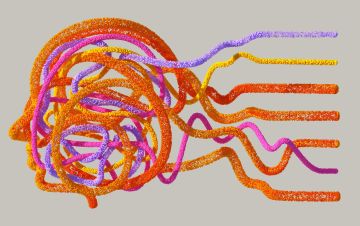The School of Education and Lifelong Learning at SETU recently hosted the third IGNITION Community of Practice (CoP) event, which focused on the dynamic intersection of generative artificial intelligence (AI) and inclusive education.
IGNITION is an Erasmus+ funded project with four partner universities based in the Netherlands, Ireland, Germany and Portugal. The aim of IGNITION is to strengthen project partners in their efforts to enhance the digital literacy of teaching staff, students, and the external parties they collaborate and engage with through innovative pedagogies like challenge-based learning.
Held on Tuesday, 7 November, this online seminar attracted over 120 registrations from Ireland, the Netherlands, Germany, Portugal and the United Kingdom – bringing together educators from across higher education.
Challenges and opportunities
Keynote speaker Professor Mike Sharples, Emeritus Professor of Educational Technology at the Institute of Educational Technology, The Open University, UK, led the event with a compelling presentation. With an impressive background in human-centred design and educational technology, Prof. Sharples addressed the complex challenges and expansive opportunities that generative AI systems like ChatGPT present in higher education.
During the event, Prof. Sharples outlined some common approaches to dealing with AI in schools and universities worldwide: to ban, evade, adapt and embrace the emergent technology. Sharples spoke of the risk of opening a new digital divide whereby confident students will embrace AI and seek to evade detection, while less confident students will refrain from using it at all. Strategies for detecting AI-generated student assignments were discussed, the importance of developing institutional policies for fair AI use and the critical need for AI literacy among staff and students. He advocated for a proactive approach to AI in education, emphasising its potential as a tool for enhancing creativity and productivity, provided it is used with an awareness of its limitations.
Ethical AI tools
The seminar was co-chaired by Laura Widger, Assistant Head of the Department of Education, and Neill Wylie, Learning Technologist from SETU. The keynote presentation was followed by a dynamic panel discussion, moderated by Laura Widger. The discussion featured insightful contributions from Dr Helen Murphy, Head of the School of Education and Lifelong Learning at SETU, and Matthijs Platje, lecturer in new technologies at Hanze University of Applied Sciences. The panellists delved into the nuances of AI-assisted assessment, emphasizing the importance of guiding students on the ethical use of AI tools. The ultimate goal is to empower students, rather than fostering dependency.
Prof. Sharples, who has authored over 300 publications and played a pioneering role in mobile learning, shared his vision for a future where AI is seamlessly integrated into educational practices. The panel echoed this sentiment, discussing the need for a balanced approach to AI integration in the curriculum. In his closing comments, Professor Sharples emphasised the caring aspect of the teaching profession and highlighted some of the original founding principles of higher education to be a community of scholars and not just purveyors of knowledge.
Dr Madelon van Oostrom (Hanze University of Applied Sciences), the principal investigator for the IGNITION project, stated, "having an expert such as Professor Mike Sharples in the CoP sharing his understanding of Generative AI for Inclusive Education was a gift! I subscribe to his thoughts on teaching as a caring profession and trying, as educators, to find a way to use AI meaningfully in our courses. Both exciting and challenging developments in AI are here to stay, already now and in our very near future. Hopefully, the sense of shared goals and experiences of the IGNITION's CoP brings our fellow educators inspiration and comfort in current times of accelerated technological change."
After the seminar, Laura Widger, the academic lead for the project in SETU, expressed her delight in facilitating a critical dialogue on the use of AI in education that is relevant to ongoing discussions on teaching and learning strategies. She expressed her gratitude to the keynote speaker, panellists, project partners, and attendees for their contributions to the discussions. Their engagement during the seminar made the IGNITION Community of Practice events a success, and the organizers appreciate all their efforts.
The next event for the IGNITION CoP is scheduled for spring 2024. You can find additional information about the IGNITION project, including a recording of the seminar and Prof. Sharple's presentation, on the project website here or on LinkedIn here.


